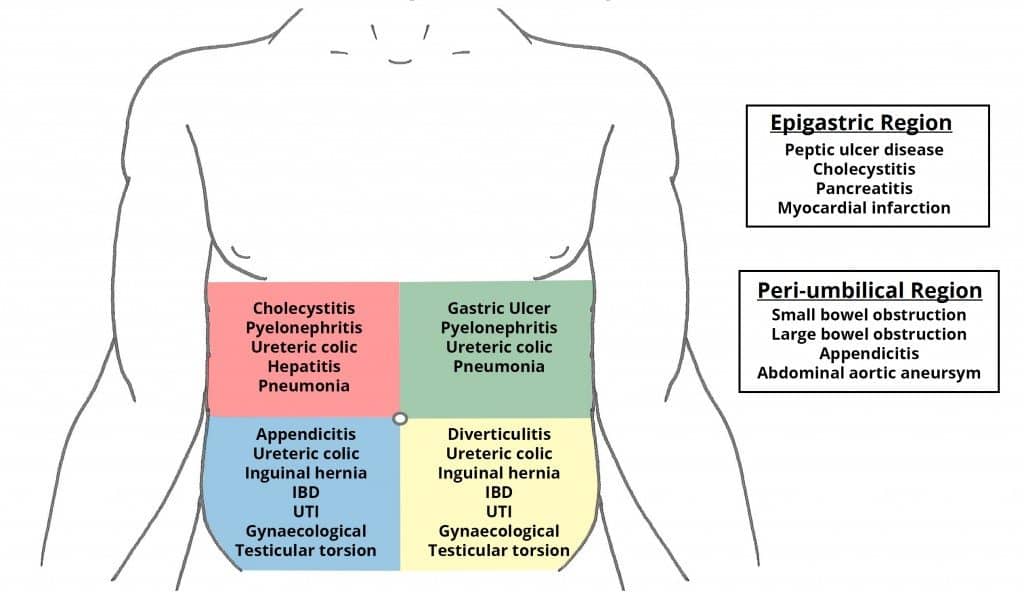
Ectopic Pregnancy: A Comprehensive Guide to Signs, Symptoms, and Treatment
Introduction
An ectopic pregnancy occurs when a fertilized egg implants outside the uterus. This is a serious medical condition that can be life-threatening if not treated promptly. The most common site of ectopic pregnancy is the fallopian tube, but it can also occur in the cervix, ovary, or abdomen.
Signs and Symptoms
The signs and symptoms of ectopic pregnancy can vary depending on the location of the implantation. However, some common symptoms include:
- Abdominal pain: This is the most common symptom of ectopic pregnancy. The pain is usually sharp and one-sided, and it may get worse with movement.
- Vaginal bleeding: This is another common symptom of ectopic pregnancy. The bleeding is usually light and irregular, but it can sometimes be heavy.
- Nausea and vomiting: These are also common symptoms of ectopic pregnancy. They may be accompanied by diarrhea.
- Shoulder pain: This is a less common symptom of ectopic pregnancy. It occurs when blood from the ruptured ectopic pregnancy irritates the diaphragm.
- Pelvic pain: This is another less common symptom of ectopic pregnancy. It occurs when the ectopic pregnancy puts pressure on the pelvic nerves.
Risk Factors
There are a number of risk factors for ectopic pregnancy, including:
- Pelvic inflammatory disease (PID): This is an infection of the uterus, fallopian tubes, and ovaries. It can damage the fallopian tubes and make it more difficult for the fertilized egg to reach the uterus.
- Endometriosis: This is a condition in which tissue from the lining of the uterus grows outside the uterus. It can block the fallopian tubes and prevent the fertilized egg from reaching the uterus.
- Previous ectopic pregnancy: Women who have had an ectopic pregnancy are at increased risk for another ectopic pregnancy.
- Smoking: Smoking damages the fallopian tubes and makes it more difficult for the fertilized egg to reach the uterus.
- Age: Women over the age of 35 are at increased risk for ectopic pregnancy.
- Assisted reproductive technology (ART): Women who have undergone ART are at increased risk for ectopic pregnancy.
Diagnosis
Ectopic pregnancy is diagnosed based on a combination of symptoms, physical examination, and ultrasound.
- Symptoms: The doctor will ask about your symptoms, including when they started and how severe they are.
- Physical examination: The doctor will perform a physical examination to check for signs of ectopic pregnancy, such as abdominal pain and vaginal bleeding.
- Ultrasound: This is a painless procedure that uses sound waves to create images of the uterus and fallopian tubes. Ultrasound can help to confirm the diagnosis of ectopic pregnancy.
Treatment
The treatment for ectopic pregnancy depends on the location of the implantation and the severity of the symptoms.
- Medication: Methotrexate is a medication that can be used to treat ectopic pregnancy. It works by stopping the growth of the embryo.
- Surgery: Surgery is the most common treatment for ectopic pregnancy. The type of surgery will depend on the location of the implantation.
Complications
Ectopic pregnancy can lead to a number of complications, including:
- Rupture: This is a serious complication that can occur if the ectopic pregnancy grows too large. Rupture can cause internal bleeding and shock.
- Infection: This is another serious complication that can occur if the ectopic pregnancy becomes infected. Infection can spread to the uterus and other organs.
- Infertility: Ectopic pregnancy can damage the fallopian tubes and make it difficult to get pregnant in the future.
Prevention
There is no sure way to prevent ectopic pregnancy, but there are a few things you can do to reduce your risk:
- Avoid smoking: Smoking damages the fallopian tubes and makes it more difficult for the fertilized egg to reach the uterus.
- Get treated for PID: PID is a risk factor for ectopic pregnancy. If you have PID, it is important to get treated promptly to reduce your risk of ectopic pregnancy.
- Use birth control: Birth control can help to prevent pregnancy, including ectopic pregnancy.
Conclusion
Ectopic pregnancy is a serious medical condition that can be life-threatening if not treated promptly. The signs and symptoms of ectopic pregnancy can vary depending on the location of the implantation. If you are experiencing any of the symptoms of ectopic pregnancy, it is important to see a doctor right away.